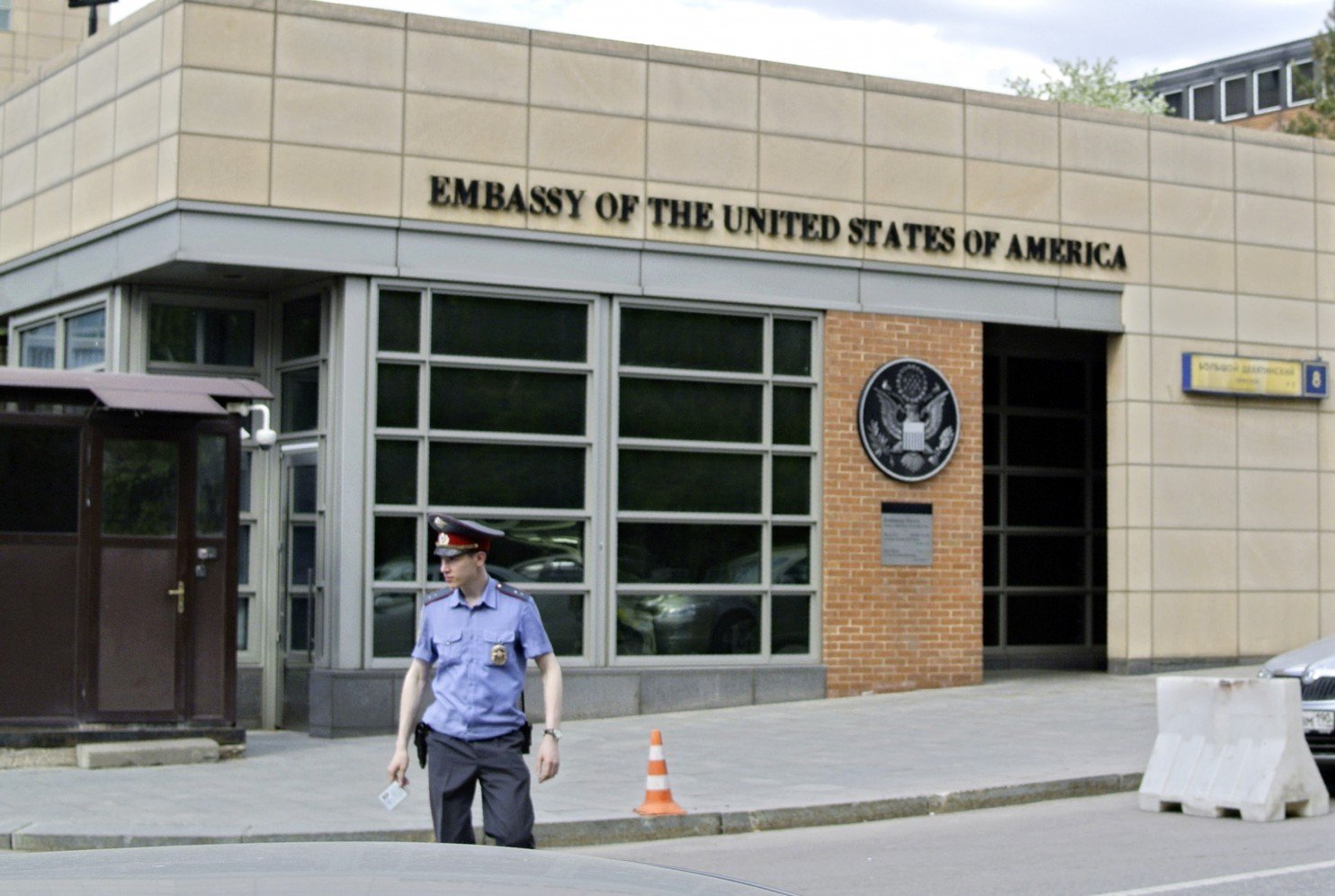
By Catherine A. Fitzpatrick, for The Interpreter
Josh Rogin, a journalist for the Washington Post, has published two articles about the harassment of US diplomats by the Russian secret police.
In the first dated June 27, Rogin writes that the Russian intelligence and security services have been “waging a campaign of harassment and intimidation” against US diplomats, embassy staff and families in Moscow and other capitals that has even compelled Secretary of State John F. Kerry to ask President Vladimir Putin to put a stop to it.
At a recent meeting of U.S. ambassadors from Russia and Europe in Washington, U.S. ambassadors to several European countries complained that Russian intelligence officials were constantly perpetrating acts of harassment against their diplomatic staff that ranged from the weird to the downright scary. Some of the intimidation has been routine: following diplomats or their family members, showing up at their social events uninvited or paying reporters to write negative stories about them.
But many of the recent acts of intimidation by Russian security services have crossed the line into apparent criminality. In a series of secret memos sent back to Washington, described to me by several current and former U.S. officials who have written or read them, diplomats reported that Russian intruders had broken into their homes late at night, only to rearrange the furniture or turn on all the lights and televisions, and then leave. One diplomat reported that an intruder had defecated on his living room carpet.
In Moscow, where the harassment is most pervasive, diplomats reported slashed tires and regular harassment by traffic police. Former ambassador Michael McFaul was hounded by government-paid protesters, and intelligence personnel followed his children to school. The harassment is not new; in the first term of the Obama administration, Russian intelligence personnel broke into the house of the U.S. defense attache in Moscow and killed his dog, according to multiple former officials who read the intelligence reports.
State Department spokesman John Kirby confirmed that the harassment has grown worse since the annexation of the Crimea in 2014 and says the issue is raised “at the highest levels” repeatedly.
But this is done privately, and some believe this enables a sense of impunity, says a congressman interviewed by Rogin:
“The problem is there have been no consequences for Russia,” said Rep. Mike Turner (R-Ohio), who serves as president of the NATO Parliamentary Assembly. “The administration continues to pursue a false narrative that Russia can be our partner. They clearly don’t want to be our partner, they’ve identified us as an adversary, and we need to prepare for that type of relationship.”
Not surprisingly, RT.com, the Kremlin’s leading propaganda outlet abroad, tried to turn the tables on the stories of harassment with an article titled “Russian Diplomats Harassed by US, Not Other Way Around”
Yet they could not cite any concrete allegations of harassment, and only repeat Maria Zakharova, spokesperson for the Russian Foreign Ministry, who said vaguely that the US used “unacceptable measures” including “psycological pressure in the presence of their families.”
“There even had been cases when such actions were carried out in the presence of pregnant wives of our diplomats,” she said, without naming names.
Zakharova slammed Rogin’s article as “shallow” and based on “hearsay,” and said Ambassador Michael McFaul “failed in his diplomatic mission” and “contributed to the worsening of bilateral relations.”
Rogin followed up with a second story, which for some reason was placed in the “Opinions” rather than the “News” section of the Washington Post, publicizing a previously unreported attack on a US diplomat near the entrance of the US Embassy complex in Moscow. The diplomat was tackled by a Federal Security Service (FSB ) guard and suffered a broken shoulder and other injuries and was flown out of Russia for medical treatment. US officials said privately that possibly the man was an intelligence agent operating under “diplomatic cover.”
In 2013, Russian intelligence services arrested US diplomat Ryan Fogle and accused him of working for the CIA. A video of his alleged spy activities, allegedly showed him using crude techniques like wearing a wig and handing over a letter openly promising euros, seemed staged. Ultimately, Fogle was expelled and the US did not comment on his role in Russia.
While McFaul served in Moscow, NTV would at times stalk him and try to “expose” him meeting opposition and human rights figures, much as it does with those individuals themselves, in a kind of caricature of a dogged investigative reporter while actually in collusion with intelligence.
Zakharov in fact confirmed what has long been an unspoken practice between Russia and the US — reciprocity — indicating that diplomats’ difficulties were directly related to US sanctions against Russia:
“Diplomacy is based on reciprocity. The more the US damages relations, the harder it will be for US diplomats to work in Russia,” she said.
But beating a diplomat — who is supposed to enjoy immunity under the Vienna Convention — is a much harsher step.
Journalists have also been routinely harassed in Russia in a variety of ways, including by the “camera crew surveillance” tactic.
Steve Rosenberg of the BBC found himself a target of the method in February 2016.
Earlier in 2014, while reporting from Astrakhan on the death of Russian soldiers in Ukraine, Rosenberg and his camera crew were attacked and equipment was smashed; the cameraman had to be treated for concussion and other injuries.
The practice of harassing foreign diplomats and journalists in a variety of ways from petty to alarming, a hallmark of the Soviet era, has been revived under Putin’s regime.
Luke Harding, a journalist for the Guardian who worked in its Moscow bureau, writes in Expelled: A Journalist’s Descent into the Russian Mafia of how he and his family were frequently targeted.
One day he returned home to find the window in his young son’s room, which he usually kept shut for safety reason, had been left deliberately opened. He also found a tape left playing in a cassette player which he hadn’t left on and later an alarm clock he hadn’t set went off in the middle of the night.
He wrote:
The tradition of harassing foreign diplomats and reporters began in the Soviet era with not only spying on diplomats in the most elaborate ways but even kidnapping and drugging some or harassing them in the ways Rogin now describes, with slashed tires and other forms of intimidation.
In 1983, US Embassy officials found what was dubbed “spy dust” on doorknobs of the embassy and steering wheels of diplomats’ cars in order to track them.
The Evening Independent wrote on September 3, 1986 of the multiple ways in which correspondents were harassed with tires slashed or windows smashed, and even set up to be arrested as “spies” as happened with Nicholas Daniloff.
At that time, Whitman Bassow of the UPI interviewed 73 present and former Moscow correspondents and concluded:
“The Kremlin’s relationship to the press is very dependent on the Soviet Union’s diplomatic relations with the United States. If there is no communication, the reporters suffer. They get the dirty end of the stick.”
— Catherine A. Fitzpatrick
By Catherine A. Fitzpatrick, The Interpreter





